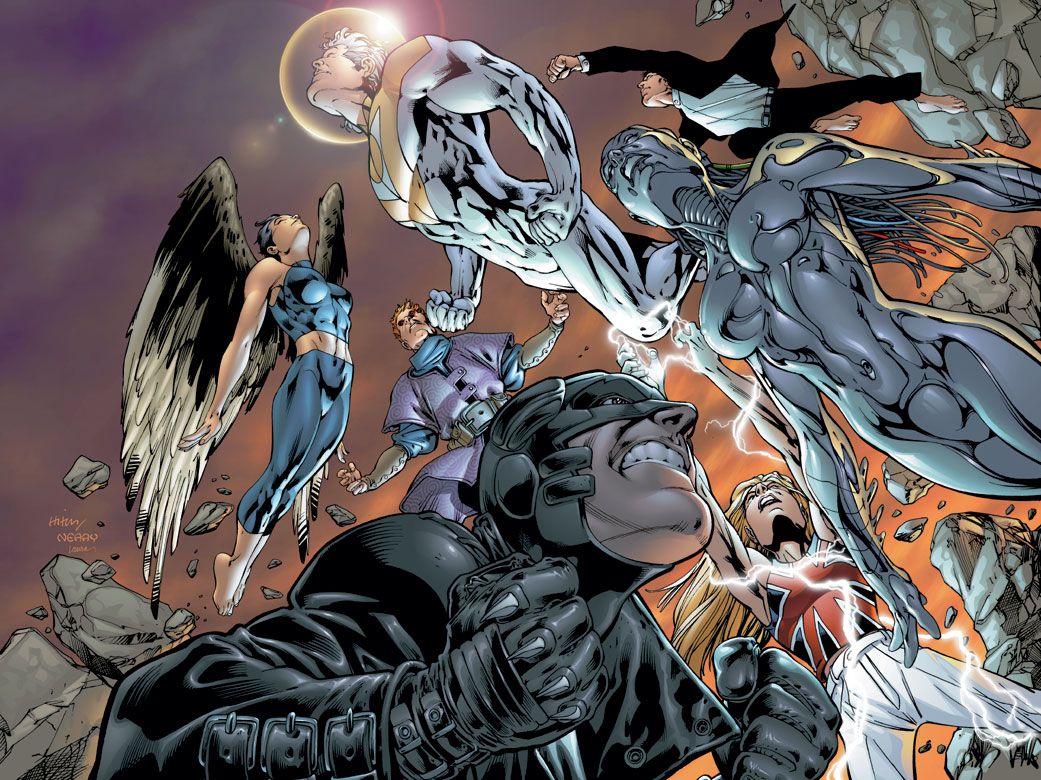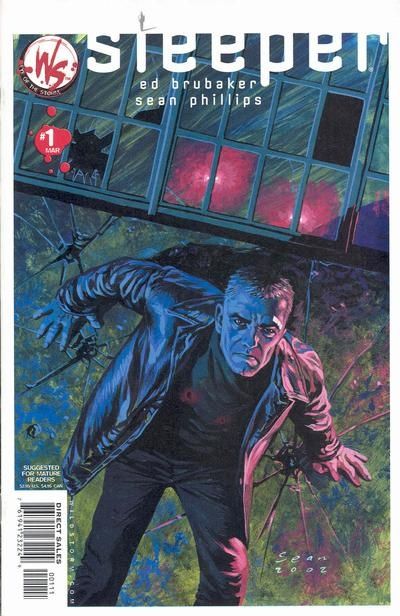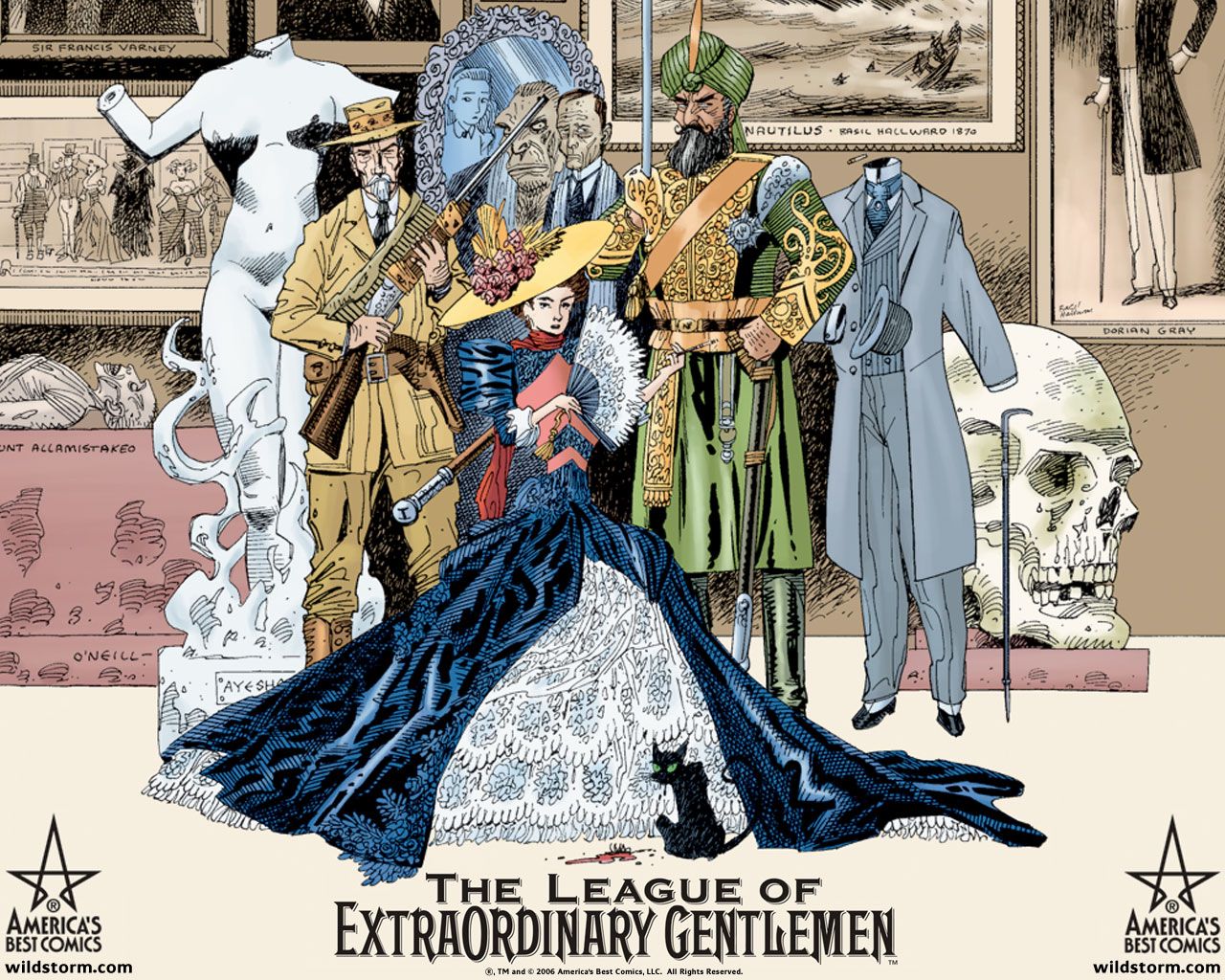After 18 years, former Image studio and current DC Comics imprint WildStorm is shutting down this December. And as many have noted already, the house that Jim built has produced many awesome, memorable and even game-changing (to steal a phrase from Rob Liefeld) works in the last two decades.
Here are six of them that we found to be particularly awesome; let us know what we missed in the comments section.
1. Sleeper: There have been many comics that mash up superheroes with down-and-dirty genres like crime and espionage over the past decade; this may just be the best. The high concept is a gripping one: Super-spy Holden Carver is so deep undercover in an international super-criminal organization that when his one contact is placed in a coma, literally no one knows he's secretly on the side of the angels. Carver's predicament, the way he plays and gets played by both sides, his growing unwillingness or inability to draw the ethical lines needed to save his soul, if not his life--such is the stuff of a great crime drama. Superstar in the making Ed Brubaker brings all his talents and obsessions to the table here: his knack for crafting morally compromised characters while neither romanticizing their misdeeds nor softening them up, his recurring theme of how the secrets and sins of our pasts never truly leave us, his belief that damaged people seek out other damaged people to repair that damage, his eye for and ability to work with strong visual stylists. In this case that meant Sean Phillips, never better in his ability to believably root spectacular action and super-powers in a naturalist-noir milieu. All of this in a WildC.A.T.s spinoff, proving just how wild WildStorm was once willing to go.
Even its relatively short run redounds to its benefit: The complete story of Holden Carver is yours to own inexpensively, read easily, and ponder at your leisure. (Sean T. Collins)
2. Astro City: For 15 years, and despite all manner of extracurricular difficulties, Kurt Busiek, Brent Anderson, Will Blyberg, Alex Sinclair, and Alex Ross (not to mention the good folks at Comicraft) have produced one of the greatest odes to superheroes ever committed to paper. On its face, Astro City may look like a mash-up of the DC and Marvel universes – a place where the truly-super Samaritan can rub elbows with the fantastic First Family – but like the decades of superhero stories it evokes, it’s not quite that simple. See, everyone in Astro City has a tale to tell, whether it involves horror or crime, romance or even funny animals. It’s Exhibit A for folks who believe that superheroes can be used to relate all kinds of stories. Sure, there are the requisite number of cosmic calamities, villainous capers, and existential threats to civilization, but they’re not really the point. Whether they’re about teenage sidekicks, time-lost crusaders, or a man robbed of love by a literal twist of fate, the best Astro City stories make those very personal connections in a way that makes the reader feel like part of the place’s history. You come to Astro City for the pastiche, but you stay for the people. (Tom Bondurant)
3. & 4. Planetary/Authority: All right, I'm going to cheat here a little bit and talk about two titles at once. And while the Authority certainly had life afterward, especially when Mark Millar and Frank Quitely got their hands on them, for the purpose of this exercise I'm going to be talking about the first 12 issues, by Warren Ellis and Bryan Hitch. Spinning out of his work on Stormwatch, Ellis and Hitch assembled a team of ultra-powerful, bad ass heroes, The Authority, who promised to make the world a better place by any means necessary. Around the same time, Ellis and artist John Cassaday created Planetary,which focused on three super-powered individuals aimed at discovering the secret history of the WildStorm universe -- a history shaped by everyone from Sherlock Holmes, the Lone Ranger and Count Dracula to an evil version of the Fantastic Four.
Both of these books debuted in 1999, right before the turn of the century, a time of anxiety and uncertainty in the world at large. The comic industry itself had survived the 1990s, the speculation fallout and, let's face it ... it really just needed someone to light a fire, someone who was willing to push storytelling forward into the new century. Both of these comics did that; while Planetary did it by challenging the notions of the past and everything we know about fictional characters, Authority did it by defining "widescreen" comics, with bold plots and concepts, and a grand visual style. They changed a lot of notions people had about comics and set a high bar for the medium in this century. (JK Parkin)
5. The League of Extraordinary Gentlemen: Anyone could have had the idea for League of Extraordinary Gentlemen. It's such a simple concept: The Justice League of America for Victorian literature. But it wasn't just anyone, it was Alan Moore. That meant that it included not just main characters like Mina Murray and Captain Nemo, but also cameo and guest appearances by John Carter of Mars, Fu Manchu, and obscure folk like Inspector Donovan and Miss Coote. It wasn't just a nineteenth century JLA, it was a bona fide and thorough exploration of the Wold Newton Universe. It was also the flagship for an entire imprint-within-an-imprint at WildStorm. Though relations were still unpleasant between DC and Alan Moore, WildStorm was able to serve as a buffer for a while and America's Best Comics lived up to its name, publishing such awesomeness as Tom Strong, Top 10, and Promethea. (Michael May)
6. Ex Machina: I still remember the day I bought this at the local comic shop. One of the employees and I, both being fans of Brian K. Vaughan's Y: The Last Man, had been eagerly awaiting it for months. He handed me my weekly stash, which had Ex Machina on top, and said, "Wait until you read the last page." Vaughan and artist Tony Harris went where I never expected them to on that last page, just as they did in every subsequent issue. Was this a superhero title? Sometimes I forgot, because it was the characters, politics and philosophical/moral debates that were featured in every issue that really connected me to the work. Although I lament the end of the title and the imprint that spawned it, it is somewhat fitting that it's one of the last exclamation marks WildStorm will leave in the comics world. (JK Parkin)



